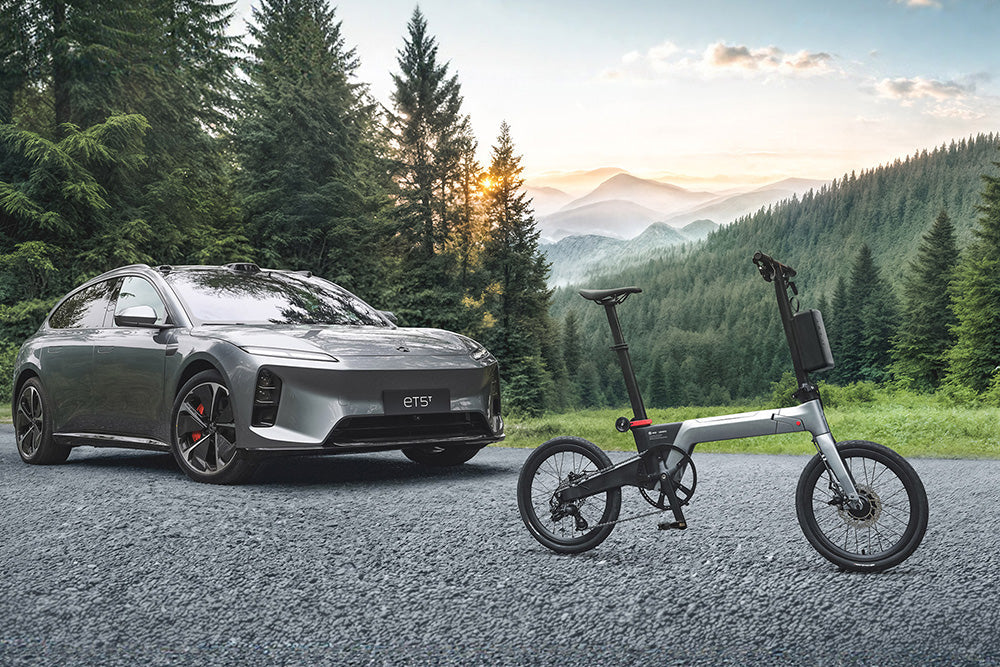The debate surrounding the environmental friendliness of transportation modes has escalated in recent years, with a particular focus on comparing electric bicycles (e-bikes) to conventional cars.
With their eco-friendly nature and ability to promote a healthy lifestyle, e-bikes have emerged as a viable alternative to traditional cars. This article takes an in-depth look at the advantages and disadvantages of e-bikes compared to cars and how they fare as a practical means of commuting. The introduction of e-bikes has sparked a discussion on whether they can replace conventional cars as the primary mode of transportation. This article examines the pros and cons of e-bikes and sheds light on their suitability as an environmentally friendly alternative to cars, particularly for daily commutes.

Advantages of Electric Bicycles
-
Cost
A key consideration in assessing the environmental impact of e-bikes is the production of their batteries. The average pedelec battery generates greenhouse gas emissions of approximately 27.5 to 37.5 kilograms of CO2 equivalents. However, these emissions are relatively low compared to the kilometers saved by using e-bikes. After just 150 to 300 e-bike kilometers, the greenhouse gas emissions from battery production are offset.
Comparative calculations highlight the environmental benefits of e-bikes over cars. A typical pedelec produces about 15 grams of CO2 equivalents per passenger kilometer, while a car produces 194 grams in comparison. These figures demonstrate that the pedelec is more than 12 times more climate-friendly than the car. This assessment takes into account all stages of the life cycle, from the use of the mode of transportation to the provision of the vehicle, infrastructure, and energy, considering the current German electricity mix.
-
Environmental Impact
A significant advantage of e-bikes is their positive environmental footprint. They produce fewer greenhouse gas emissions over their lifespan compared to cars. The energy consumption per kilometer is lower, and the use of renewable energy sources can further enhance this environmental impact.
-
Health and Fitness
E-bikes promote physical activity, especially for those who would otherwise engage in less movement. The pedal-assisted ride allows people to manage different fitness levels, making it an effective way to incorporate moderate exercise into daily lifestyle, which has positive effects on overall health.
Limitations of Electric Bicycles
-
Range and Speed
The range of e-bikes is limited compared to cars. Long commuting distances can be challenging, especially when charging stations are limited. Additionally, the top speed of e-bikes is lower, which can affect travel time.
-
Cargo Capacity
In comparison to cars, e-bikes have limited cargo capacity. Transporting groceries, children, or larger items can be challenging. It requires creative solutions such as trailers or specialized accessories.
-
Weather and Terrain
E-bikes may face limitations in adverse weather conditions, particularly rain or snow. Similarly, challenging terrains like steep hills can be difficult to navigate with an e-bike.
Practical Considerations
-
Commuting Needs and Distances
The suitability of e-bikes heavily depends on commuting needs and distances. They are ideal for short to medium distances in urban areas. The availability of charging stations and bike lanes plays a crucial role.
-
Infrastructure and Support
The development of e-bike-specific infrastructure is vital. Safe bike lanes, charging stations, and secure parking facilities are important aspects that need to be considered to establish e-bikes as a practical option.
-
Parking and Storage
E-bikes offer the advantage of being easier to park compared to cars. They require less space and allow for more flexible parking options. Storage at home is also easier as e-bikes take up less space.
Personal Preferences
-
Lifestyle and Values
The choice between e-bikes and cars often depends on personal preferences and lifestyle. City dwellers may value the agility and flexibility of e-bikes, while rural residents may rely on cars to cover long distances.
-
Urban vs. ländliche Überlegungen
In urban areas, e-bikes are often the more practical choice as short distances can be easily covered. In rural areas where distances are greater, a car may be more necessary.
The convenience of e-bikes lies in their flexibility. They can easily maneuver through traffic flows, while cars may get stuck in congestion. E-bikes offer faster mobility in urban areas.

The debate on whether e-bikes can replace cars is complex and depends on many factors. Both have their advantages and disadvantages, and suitability strongly depends on individual needs, infrastructure, and personal preferences. However, it is clear that e-bikes should be considered as an environmentally friendly and healthier alternative, especially for short commuting distances in urban areas. A balanced approach to transportation choices can lead to a more sustainable and healthier future.




